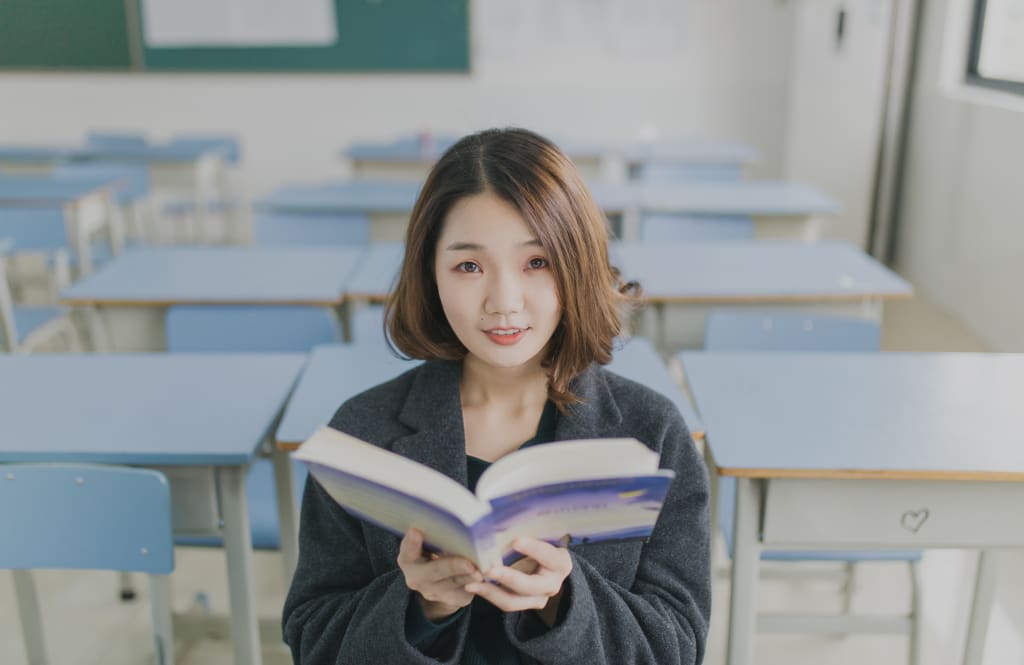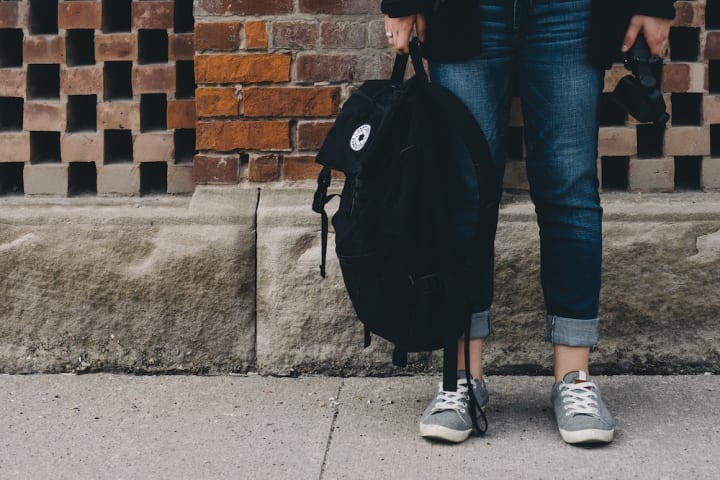What Every Parent Needs to Know About Specialty Schools
I'm a graduate of a non-traditional school. Let me explain what every parent needs to know about specialty schools in their area.

"Did you go to private school? Public? You're so well-spoken for someone without a degree!"
It's a trio of sentences I often hear. As a college dropout, it's something that irks me on a lot of levels. Though I could rant about peoples' assumptions about my education level, I actually feel like it's about time to talk to the world about something else.
You see, I didn't go to public school or private school for my high school years—technically. I went to a specialty vocational school that's focused on math and engineering. My school is one of many specialty schools in the area I'm from.
Honestly, specialized schools are grossly underused by parents who really should look into them. As a graduate of one, here's what I believe every parent needs to know about specialty schools.
First off, you don't need to be a millionaire to enroll your kid in a specialized school.
One of the most important things every parent needs to know about specialty schools is the potential price tag associated with them. In this sense, I have some good news for you. A lot of these schools are free of charge if your family is accepted for enrollment.
My high school is considered to be one of the best in the area, and often beats out private schools where CEOs send their kids. Despite this, my parents never spent a dime to get me enrolled there.
A friend of mine, Alex, was also enrolled in a specialty high school. Unlike mine, his was for children who had emotional problems. His high school helped him become a well-adjusted adult, and its price tag was also $0.
Charter schools, schools for emotionally disturbed children, special needs schools, vocational schools, and specialized career-oriented, college-track schools are all specialty schools.
That said, you should probably just make sure there are no tuition costs involved in them before you apply if that's the kind of schooling you want for your children.
The majority of specialty schools serve a purpose.
No one ends up in a specialized school without good reason.
People in my high school were in the top two percent of their town, and had an avid interest in science. Only the elite who wanted a degree in STEM were able to attend. It was a school made with the sole purpose of boosting STEM enrollment among students.
Alex was referred to his specialty school after he hacked into his school's computer system, wrote out a bomb threat, and tried to blackmail the principal. He claimed he did it all because he was depressed. Public schools said he was too dangerous, so they sent him to a specialty school for emotional disorders.
Some schools, such as charter schools, are meant to offer a private school education without a private school price tag. These schools are a blend between public and private. They are meant to offer economically disadvantaged kids a way to get a quality education.
They also are grossly under-advertised.

If you are new to worrying about scholastics, I totally understand that finding out new school types is a little difficult. This is why the total lack of advertising to specialized schooling programs makes me upset.
Every parent needs to know about specialty schools, even if they are sure they want to stick to a standard public school experience. These schools can be what saves your kids from a bad schooling experience, or help your kids become well-rounded adults.
With my personal experience, I didn't have a good time. I was bullied for not being "nerdy" enough, and for being burned out all the time. My friend Alex, on the other hand, credits his specialty school with making him a functional member of society, and someone who knows how to effectively support good behavior in school and in his adult life.
For people like me, there's about 10 who had Alex's experience. From that alone, I can speak to the importance of knowing what schools are in your area.
Specialty doesn't always equal "great."
My school was famous for having excellent academics. Around a tenth of my class got into Ivy League schools. My school, on an academic or prestige level, was great. A lot of specialty schools are excellent.
That said, not all are.
Every parent needs to know about each specialty school in their area. There are some specialized schools that are really, truly terrible for kids—either due to bad teachers, bad environments, or both.
You need to vet your school of choice for your particular family's needs.
Generally speaking, they do have smaller class sizes.
The one thing I'll credit almost all specialty schools with though is the class sizes. Most schools that fall into this category have classrooms that are exceptionally less crowded than most of the public schools I've heard of.
At one of my classes in high school, there were only five students in the class. Five! When was the last time you heard of getting that kind of individual attention in school?
They also tend to have more highly trained teachers.
Now, this isn't a rule, per se, but more of an observation. The teachers who tend to work at these schools often need a lot more certification to make the cut.
In the case of schools that serve children who have disabilities or behavioral problems, the teachers almost always have multiple certifications that specifically help your special needs child. They also may need additional education to continue teaching throughout their career.
At vocational schools, teachers need on-the-job experience before they can advise students. At STEM schools like my own, you'll see people with degrees from MIT.
The school culture is also very different than mainstream schooling tends to be.

This is something both Alex and I can vouch for. The cultures and traditions that we saw in our high schools are very different from the normal "pep, pep, rah, rah" of standard public high schools.
My school didn't have gym class, and was known for an extremely high pressure to achieve success. We were way more serious and taciturn, as a whole, compared to public schoolers.
Alex's school was so vastly different from public school, it acted a lot more like a hospital than a school. He can't really relate to most mainstream school stores.
I can't speak for all schools, though. I'm sure charter schools don't have as big a difference, but even with them, you'll notice certain subtle changes in the way kids behave.
Generally speaking, employers trust specialty schools more than homeschooling.
From what I've seen behind the scenes in a career in human resources, there's a noted difference between the way they treat homeschooled kids and the way they treat kids from specialty schools.
This is one of the more important things every parent needs to know about their perception of specialty schools, from the enrollment application all the way through to graduation. What schooling you choose for your kids can and will affect their ability to stay employed.
Employers are much more willing to hire specialty school grads, even from those that are for children with behavioral problems, than they are homeschooled kids. There's a standard there that doesn't exist with homeschooling.
Sometimes, you'll get referred to a specialty school by a professional.
Most people who were going to my high school heard about the school way before they attended. It was a school that coasted along on prestige alone. I'll point out that my school wasn't the norm in my area though; most people were referred to specialty schools by a professional.
Alex, for example, was referred by a social worker. His public school was laying out the groundwork for expulsion, and he wouldn't have graduated otherwise.
If your child has a disability, you may have a social worker who can advise you on how to apply for a specialty school where they can get the care they need. This is a fact every parent needs to know about specialty schools, but especially if they are worried about being unable to help their kids in public school.
Overall, it's not a bad option.
Bad as high school was for me, I'm still a huge proponent of this school system. Had I gone to public school, I probably would not have been as well-read. I also probably would have had an arrest record for reasons similar to Alex.
Either way, my main point is that you should probably consider a specialty school for your kid, especially if you feel like your child could use an ulterior method of instruction. Welcome to alternative education!
About the Creator
Skunk Uzeki
Skunk Uzeki is an androgynous pothead and a hard partier. When they aren't drinking and causing trouble, they're writing articles about the fun times they have.






Comments
There are no comments for this story
Be the first to respond and start the conversation.